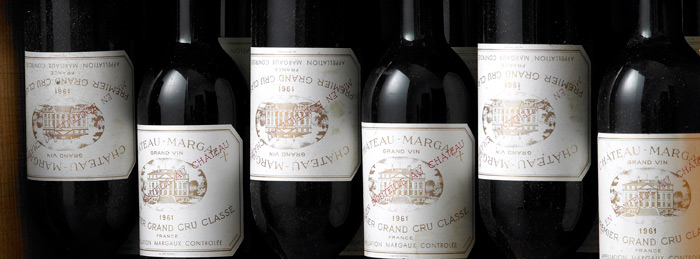Fine Wine Investment
Author: Berry Bros. & Rudd
That the best wines have proved to be sound investments over the past few years is undeniable: one only need to look at the numbers to see that the fine wine market has been exceptionally buoyant since 2005 (the year, not the vintage) and customers who own top end 1996 & 2000 clarets will have done very well indeed. Prices for the best 2005’s have also moved upward and we look forward to their physical arrival in the UK in the Spring, which should coincide with Robert Parker’s report of the wines in bottle.
The recent turmoil in the financial markets has had relatively little effect on the fine wine market. The lack of any significant crossover or correlation between the financial and fine wine markets has been well documented, and to me it’s quite simple: fine wine is a tangible asset, it is a luxury product that we aspire to own, consume and know more about. It’s much more useful than gold, and easier to enjoy than art.
Moreover, the supply of any particular vintage of, say, Margaux, is constantly diminishing and, in the case of younger vintages, is constantly improving. Is a case of 2005 Chateau Margaux worth it?
Yes, every penny and more.
Interest and demand for fine wine is growing. The price rises that we have seen for the very best, driven largely by the super-wealthy and the “new” markets of the Far East, etc, are the ones that have grabbed the headlines but it is important to note that these are not the only wines that are selling. I see no sign of this demand falling and the number of potential new wine lovers, drinkers, buyers and connoisseurs in this increasingly wealthy and sophisticated world is unbounded.
We will shortly be launching our own measure of the fine wine market – The BBR 100. This of course will be no measure of the quality, the class, the sheer beauty of the wines that will be included, but it will make for an unbiased and unemotional gauge of the market’s ups and downs.
Will the price rises that we have seen over the past two years continue?




I have no doubt that the price rises over the past couple of years will continue to soar because, as you say, fine wine is a tangible asset, a unique expression of beauty which pays great tribute to the hard work and expertise of its creator – the winemaker.
Without meaning to sound too sombre, in today’s monotonous society where fashion, music and even to some extent art are recycled, it’s refreshing to own and to appreciate something which continues to evolve and surprise, a real rarity.
Could anyone from BBR please confirm if an owner of a large collection of fine wine will have to pay capital gains tax upon a sale of it as an asset?
As, the article claims, it is a tangible asset and it would be normal that any dramatic increase in value would be subject to a 40% tax when it comes to the point of sale.
Such a tax would no doubt affect the ‘true value’ of such an asset considerably. Moreso, when it comes to sales of other assets such as land or shares there are exceptions in available such as single home owner and business asset purchase release. Unless the vendor is a purveyor of fine wines, it would be difficult to convince HMRC that they should benefit from such a tax exemption.
If this is the case then investment in fine wine for a personal collection is a nothing more than an expensive past-time, investing in it as an alternative to an underperforming stock market, is an ultimately fruitless endeavour.
I do not think the market for fine wines will ever stagnate, given such an extensively longstanding heritage
We would suggest speaking to a Financial Advisor about this but yes, in theory wine is exempt from Capital Gains Tax as it is classed as a chattel and a wasting asset (something whose normal lifespan doesn’t exceed 50 years). Certain rules apply, and of course there are wines that will keep for 50 years so vintage Port (not really an investment performer anyway) might not qualify.
Cannot agree with you more that top-end fine wines have proved to be sound investments & would continue to do so. Actually I’m BBR’s customer from HK and I’m really glad that I have bought some 1996 & 2005 Lafite in 2006 which have proved to be excellent alternative investments with almost 90% return. They even have a hedging effect to balance my exposure in the volatile stock market.
With the huge hot demand from Asia, especially from China for Lafite, I really cannot see any reason for the price surge to stop unless there are dramatic downturns in the Asian economies.
Here in Australia, fine wine is definitely an investment, but as with all such things, it really relies on the buyer (of that investment, in the future) seeing value in your wine.
Even a dozen bottles of Grange (considered by many experts as Australia’s PREMIUM wine) is of limited investment value if you can’t find someone who sees the true value in it.
So, the secret (IMO) is to buy carefully. Don’t invest in fad wines or ‘here-today, gone-tomorrow’ wines, because chances are they’ll NOT be popular in 5-10 years (however long you want to hang on to them), in which case you wasted your money!
Laurel Boehm
Silkwood Wines
Pemberton, Western Australia